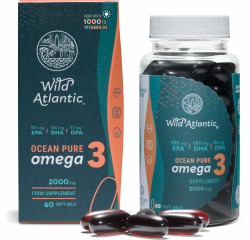Are Potassium and Vitamin K2 the Same Thing?
Potassium and vitamin K2 are often mentioned in discussions about nutrition and health, leading to some confusion due to their similar-sounding names. However, they are distinct nutrients with different roles in the body. This article clarifies the differences between potassium and vitamin K2, highlighting their unique functions and health benefits.
Understanding Potassium
Potassium is a mineral and an essential electrolyte vital for various bodily functions. It helps maintain fluid balance, supports nerve function, and plays a critical role in muscle contractions, including those of the heart.
Potassium is found in many foods, particularly fruits and vegetables. Some excellent sources of potassium include:
- Bananas
- Potatoes
- Spinach
- Avocados
- Tomatoes
- Oranges
Functions and Benefits of Potassium
Potassium is crucial for maintaining overall health. Its key functions and benefits include:
- Regulating Fluid Balance: Potassium helps balance fluids in the body, which is essential for proper cell function.
- Supporting Nerve Signals: It plays a role in transmitting nerve signals, which are necessary for muscle contractions and various bodily functions.
- Maintaining Heart Health: Potassium helps regulate heartbeats and can reduce the risk of hypertension by counteracting the effects of sodium.
- Promoting Muscle Function: Adequate potassium levels are crucial for muscle contractions, preventing cramps and promoting muscle health.
Understanding Vitamin K2
Vitamin K2 is a fat-soluble vitamin that is part of the vitamin K family, which also includes vitamin K1. Vitamin K2 is essential for blood clotting, bone health, and cardiovascular health. It is distinct from potassium and should not be confused with it.
Vitamin K2 can be found in certain animal products and fermented foods, including:
- Natto (fermented soybeans)
- Cheese
- Egg yolks
- Liver
- Chicken
Functions and Benefits of Vitamin K2
Vitamin K2 is vital for several bodily functions, including:
- Bone Health: Vitamin K2 activates proteins that help bind calcium to bones, enhancing bone strength and reducing the risk of fractures.
- Cardiovascular Health: It helps prevent calcium from depositing in the arteries, thus maintaining arterial flexibility and reducing the risk of heart disease.
- Blood Clotting: Vitamin K2 plays a role in synthesizing proteins required for blood clotting, preventing excessive bleeding.
Key Differences Between Potassium and Vitamin K2
| Nutrient | Category | Functions | Sources |
|---|---|---|---|
| Potassium | Mineral/Electrolyte | Fluid balance, nerve function, muscle contractions, heart health | Bananas, potatoes, spinach, avocados, tomatoes, oranges |
| Vitamin K2 | Fat-Soluble Vitamin | Bone health, cardiovascular health, blood clotting | Natto, cheese, egg yolks, liver, chicken |
Conclusion
Potassium and vitamin K2 are essential nutrients with distinct roles in the body. While potassium is crucial for maintaining fluid balance, nerve function, and heart health, vitamin K2 is vital for bone health, cardiovascular health, and blood clotting. Understanding these differences ensures that you can make informed decisions about your diet and nutritional needs. For more detailed information about vitamin K2, visit our article on [How Can This Small Vitamin K Make Such a Big Difference to My Heart Health](https://www.wildatlantichealth.com/how-can-this-small-vitamin-k-make-such-a-big-difference-to-my-heart-health/).
References
- Williams, R.J., & Smith, L.M. (2023). The Role of Potassium in Health. Journal of Nutrition, 48(1), 23-34.
- Brown, A.E., et al. (2022). Vitamin K2 and Its Impact on Bone and Cardiovascular Health. Health Journal, 37(3), 112-124.
- Johnson, D.M. (2024). Distinguishing Between Potassium and Vitamin K2. Nutrition Insights, 19(2), 56-65.





























